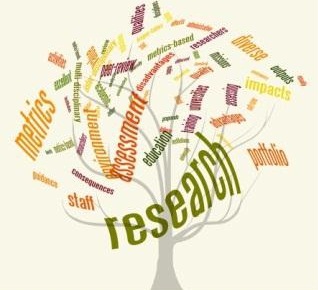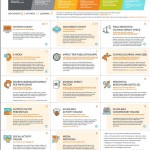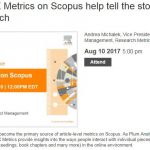 Back in May HEFCE launched a Call for Evidence on the role of metrics in research assessment. The Independent review chaired by by Professor James Wilsdon, University of Sussex and supported by an independent steering group, is tasked with building on the previous 2008/9 pilot exercise to explore the current use of metrics for research assessment, consider the robustness of metrics across different disciplines, and assess their potential contribution to the development of research excellence and impact.
Back in May HEFCE launched a Call for Evidence on the role of metrics in research assessment. The Independent review chaired by by Professor James Wilsdon, University of Sussex and supported by an independent steering group, is tasked with building on the previous 2008/9 pilot exercise to explore the current use of metrics for research assessment, consider the robustness of metrics across different disciplines, and assess their potential contribution to the development of research excellence and impact.
HEFCE received 153 responses (44% from HEIs, 27% individuals, 18% learned societies, 7% providers, 2% mission groups, 2% other). With the majority – 57% – of those who responded expressed overall scepticism about the further introduction of metrics into research assessment.
As part of the review three stakeholder workshops have been held/scheduled on key areas of interest and debate:
- In metrics we Trust – 7th October, University of Sussex. Prospects and Pitfalls
- Metrics for All? – 2nd December 2014, University of Sheffield. Equality and Diversity
- Metrics – Arts and Humanities – 16th January 2015, University of Warwick.
To date, all have been well attended and very lively. I was able to attend the I workshop in Sussex with some 150 odd other delegates including members of the metrics review panel, metrics developers and providers, researchers, university managers, and a range of stakeholders from across the research and HE community.
The day contained many thoughtful contributions from a range of speakers including: Dr Philip Campbell, Editor-in-Chief, Nature; Professor Stephen Curry, Department of Life Sciences, Imperial College; and Dr Steven Hill, Head of Research Policy, HEFCE. There was lively discussion about the value, potential role, and unintended consequences of metrics in research evaluation. If you are interested in the future role of metrics in research assessment, I would particularly recommend reviewing the presentations from David Colquhoun, Emeritus Professor of Pharmacology at UCL and Dorothy Bishop, Professor of Developmental Neuropsychology, the University of Oxford.
For further insight you could also check out the Twitter discussion, which has over 1000 tweets tagged with #HEFCEmetrics, Impact story have also helpfully encapsulated much of the story/discussion via Storify.
The results of the review will be announced at the end of March and published in the summer. The report will make recommendation againsts three time horizons:
(1) What can HEIs do to improve research management now;
(2) Suggestions for the next REF;
(3) The longer term, including identification of programmes for further work.
 Research Impact Metrics – useful reference cards
Research Impact Metrics – useful reference cards PlumX Metrics – Webinar
PlumX Metrics – Webinar










 Upcoming opportunities for PGRs – collaborate externally
Upcoming opportunities for PGRs – collaborate externally BU involved in new MRF dissemination grant
BU involved in new MRF dissemination grant New COVID-19 publication
New COVID-19 publication MSCA Postdoctoral Fellowships 2024
MSCA Postdoctoral Fellowships 2024 Horizon Europe News – December 2023
Horizon Europe News – December 2023